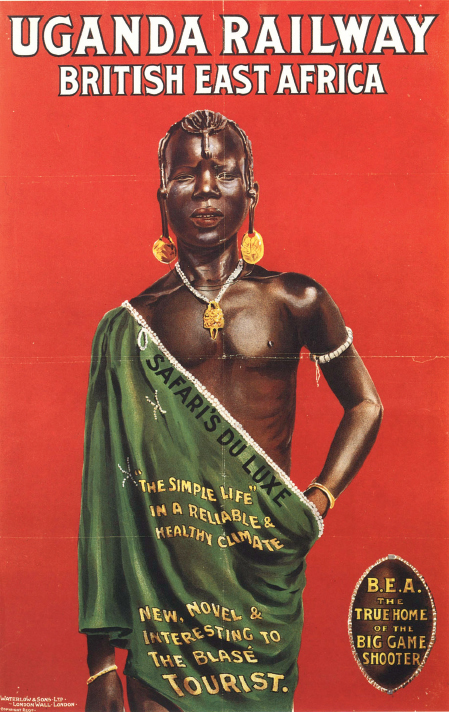What were the global consequences of European industrialization between 1800 and 1914?

British East African Railway PosterEuropeans constructed railroads in most of their African colonies to haul raw materials from the interior to coastal ports and to transport colonial officials, white settlers, and foreign tourists. Britain’s East African railroad line from Kampala, Uganda, to the Kenyan port city of Mombasa was one of the most famous and most romanticized. Indians from British India did much of the construction and then remained in Kenya to form substantial Indian communities. President Theodore Roosevelt rode this train while on his 1909 African safari. (Advertising Archive/Courtesy The Everett Collection)
OOVER THE COURSE OF THE NINETEENTH CENTURY the Industrial Revolution expanded and transformed economic relations across the face of the earth. As a result, the world’s total income grew as never before, and international trade boomed. Western nations used their superior military power to force non-